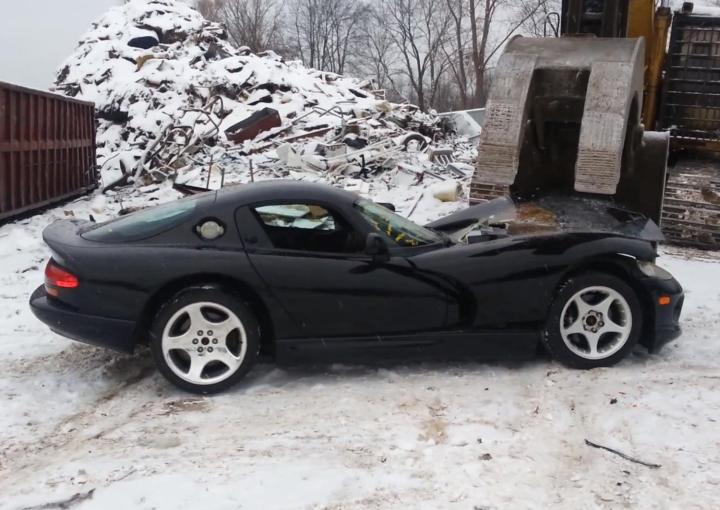
Chrysler seems to have taken a page out of Darth Vader’s book and has decided to destroy 93 original Vipers that were donated to schools for educational purposes. What could those educational purposes be? We haven’t a clue. Perhaps it was the study of “donutontology”?
To continue with the evil feel, Chrysler has decided to brutally crush the rare sports cars. The company has already begun the process with no sign of stopping until all 93 are the size of a can of soup.
Amid the insanity, even the fourth model to roll out of the factory isn’t immune to the devastation, even though it sports an awesome electric blue paintjob. Jay Leno stepped forward, offering to save the ultra-rare Viper but Chrysler declined. I guess Chrysler really doesn’t care which garage the car sits in … these Vipers are done for.
Why would Chrysler do such a thing? My theory is that the sinkhole that consumed those eight Corvettes in Kentucky is calling the shots over at Chrysler HQ.
Chrysler stated two of the 93 doomed Vipers have been involved in accidents and the liability for the company has reached into the millions of dollars.
Despite the fact that these cars are owned by Chrysler, I still can’t find reason for the wave of destruction. If the company is willing to crush Vipers in the cruelest way it can, why didn’t it crush the eyesore crossover Caliber?
So if you’re keeping track at home, a sinkhole sucks in eight rare ‘Vettes and Chevy offers to fit the bill. But when two old Vipers get in a fender-bender, all 93 examples must be crushed and made into Chinese washing machines. Got it.
If I think I’m upset about this news, I can’t wait to see the looks on faces of the North American Viper Club members when Chrysler the news.


